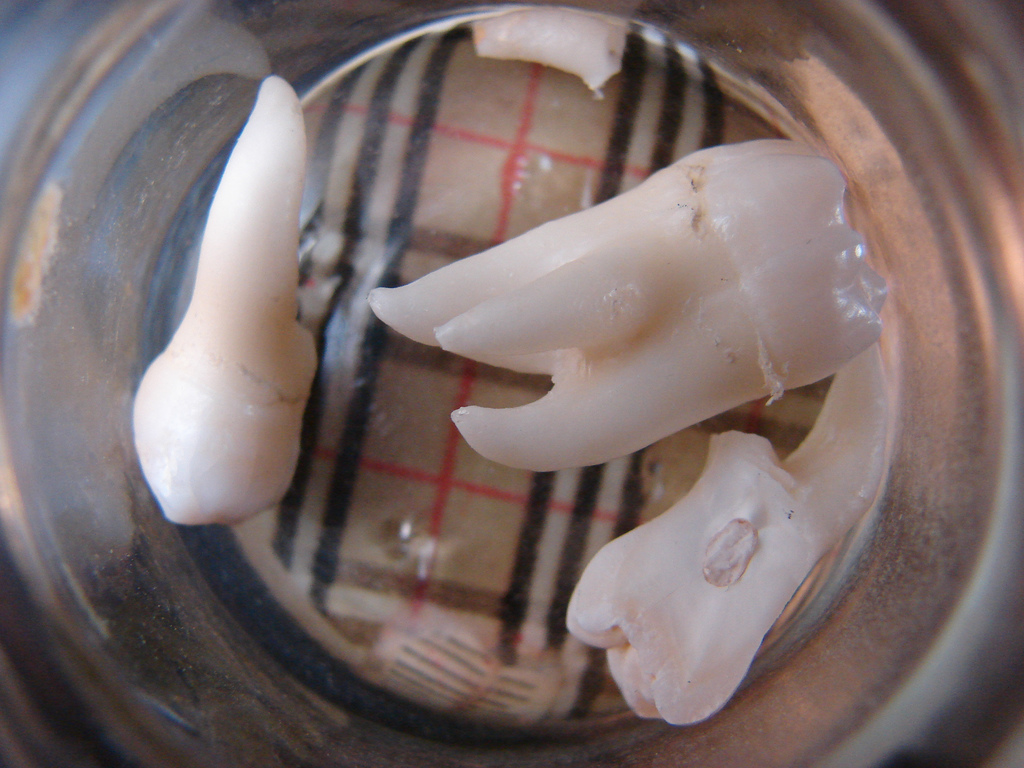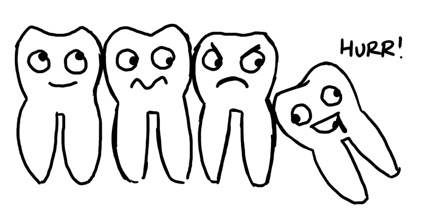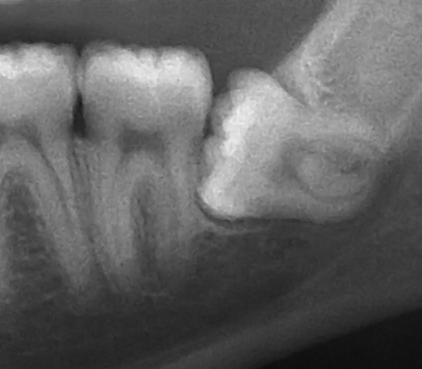Wisdom teeth are the backmost teeth in the oral cavity, right behind the molars. They are the last 4 teeth to erupt of our 32 teeth altogether. They usually erupt between the ages of 20 and 30, if they can erupt properly.
Some very few lucky individuals have their wisdom teeth erupt almost unnoticed, without any problems, and some people never see their wisdom teeth erupt at all. Most people suffer a great deal when their wisdom teeth are coming in. Usually they have an irregular growth pattern, and thus they cause problems when erupting. This is due to our evolution: our jaws become smaller and smaller as our brains grew, and there is simply not enough space for them to erupt into.

Possible wisdom tooth issues Wisdom tooth growing in the wrong direction
Because of the lack of space, wisdom teeth have a tendency to grow in the wrong direction. Sometimes this means horizontal growth, and sometimes it means vertical, normal growth, but sometimes it means that the tooth is growing at an angle.
Frequently, the wisdom teeth grow on top of the teeth next to it. This will push the other teeth together, creating crowding, and this will also cause tooth decay. Because they are hard to reach, wisdom teeth are at a heightened risk for tooth decay, and properly cleaning them is nearly impossible. They frequently get infected or decayed even if the patient has impeccable oral hygiene and takes really good care of their teeth. If the wisdom tooth has grown in a way that it disrupts the molar, then the gap between the tooth will start to accumulate food detritus and plaque, and also become inaccessible, and those teeth will also start decaying at the gaps almost inevitably.

Possible wisdom tooth issues Impacted wisdom teeth
An impacted tooth is a tooth that has not fully erupted, and stays partially or entirely lodged in the soft tissues or the jaws. The problem usually begins when the tooth only partially erupts, and stays lodged in the gums. A partially erupted tooth is incredibly difficult to clean, and will all too frequently result in gingivitis and tooth decay.
Possible wisdom tooth issues Infected wisdom teeth
Symptoms of infected wisdom teeth includes swollen, painful gums, which can affect the throat and ears as well. Swollen glands and difficulty opening your mouth or jaws are also symptoms, ones that can lead to lockjaw. If you have these symptoms, consult with your dentist immediately!

Treating wisdom teeth issues
As with all dental problems, prevention is the best medicine, and wisdom tooth extraction is no exception, and we highly recommend getting them removed at an early age. It is best to have a dentist look at and analyse the condition of your wisdom teeth before they even erupt, in your teens.
Our dentists can determine whether or not the wisdom teeth will need to be removed or otherwise manipulated with a simple panoramic x-ray. The sooner you get them diagnosed, the less problems you will have later on, and the less damage the wisdom teeth can cause to your oral health.

